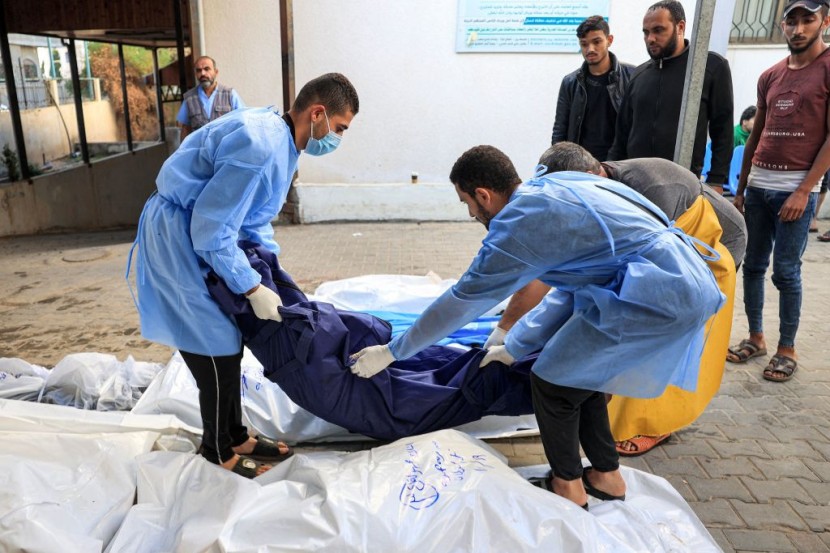
Since the World Health Organization's (WHO) own medication storage in the Gaza Strip is now fully empty, it has been cautioned that patients are undergoing operations without anesthetic due to a lack of supplies.
Medical supplies are running low as Israel tightens its blockade, forcing doctors to make difficult decisions.
WHO predicts that essentials like morphine, saline solution, and surgical supplies would run out in a matter of days due to the siege and ongoing Israeli bombardment of the enclave.
According to the agency, blood banks barely have two weeks' worth of supplies available, while local and general anesthetics are almost depleted throughout the strip. Drugs for treating high blood pressure, diabetes, and seizures, as well as those used in dialysis and for heart disease, are all dangerously low.
Lack of General Anesthesia
A horrific hit on a hospital in northern Gaza on Tuesday night, October 17, is reported to have killed hundreds of people, including displaced children. The warnings of failing supplies came amid fears for those injured in the attack.
Top doctors in Gaza told The Independent they had to treat patients on the ground. Some footage shows medics assisting patients who had collapsed in pools of blood.
Medical staff are so overburdened by the casualties, especially in the wake of Tuesday night's bombardment of the al-Ahli hospital. Dr. Medhat Abbas, director of al-Shifa, the biggest hospital in Gaza, said some wounded patients are left to succumb to their wounds.
"Surgeries are being performed in the corridors without anesthetics. Hundreds are in the corridors of the hospitals in front of the operations rooms and in the emergency rooms on the ground. The majority are children," he stated.
Emergency physician Mohamed Ghanem of al-Shifa said that the high number of victims had filled all available operating rooms. He also confirmed that surgeons were attempting operations without anesthesia in the hallways.
Anesthesia drugs were provided by the WHO team in Gaza, but only enough for 50 procedures needing general anesthesia since they were purchased on the local market.
WHO delegate Dr. Richard Peeperkorn said hospitals are on their final supplies, and health staff are forced to make hard decisions, including operating without anesthesia. "The health system is on its knees, and collapse is imminent unless aid is allowed in. I plead for water, food, fuel, and medical supplies to be allowed into Gaza. The time to ring the alarm bells has run out. Gaza is crumbling right before our eyes."
Long-Awaited Humanitarian Aid
Just recently, Israel has allowed the Egyptian government to send aid to the Gaza Strip. However, there was no confirmation of when the supply run would commence or what the maximum number would be.
After cutting off all supplies to the strip prior to its siege, the decision by Israel to allow the restricted supply of humanitarian commodities was a much-needed respite for Gazans.
© 2026 HNGN, All rights reserved. Do not reproduce without permission.








